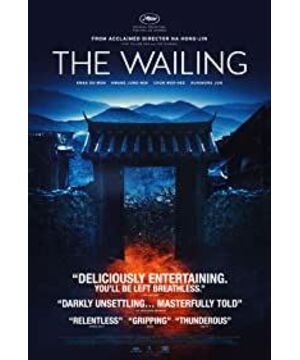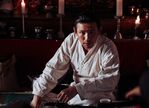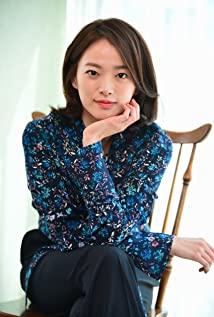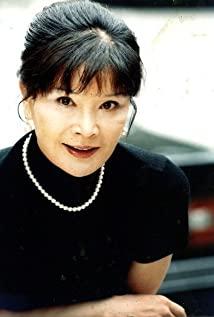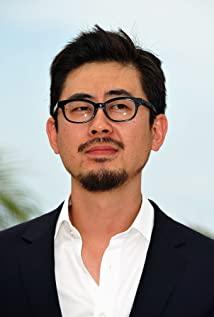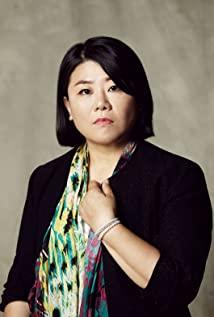The three religions involved in the film--if it doesn't have to be strictly distinguished--are Shintoism, Shamanism, and Catholicism (if you want to read the movie, turn left and look for popular science in popular movie reviews). The series of murders and the shattered calm, probably through a village, alludes to the promotion of national Shinto during Japan's rule of the Korean peninsula, in an attempt to incorporate Korea into the imperial system, thereby breaking the local order of daily life.
Let's talk about the Japanese first. Rather than Shintoism, it should be "national Shinto" (a polytheistic religion). National Shinto is a very modern product. It was born out of "retroversion of the king's government" and "consistency of worship and government". Since the Middle Ages, it has been attached to Buddhism (the combination of gods and Buddhas), and it was not until the early Meiji years that "the separation of gods and Buddhas" became a national religion. As the foundation of "nationalism", the Tokyo Shikunsha (now a certain shrine) established in the second year of Meiji is a product of the birth of Japan as a modern country, in short, a symbol of the national system.
Another impetus that can make one polytheism a single faith seems to me to be folklorists. Nan Nan Xiong Nan (1867-1941), Yanagida Kunio (1875-1962), Origuchi Nobuo (1887-1953), these great things in the modern academic history, collected, sorted and classified the folklore and legends from all over Japan, and arranged them in order. Eight million gods, each with its own shrine, cannot function as a "national religion" if it cannot be managed in a unified manner (the modern social system and the Shinto Affairs Bureau were created).
In comparison, shamanism is just a folk custom. This kind of jumping god originated in Northeast Asia, on the one hand, there is no theoretical system, and on the other hand, the Korean Peninsula is only a part of Northeast Asia, and the Manchus and Mongolians also have similar dancing methods. In the history of Korea, if it can be regarded as the state religion, it may be Confucianism inherited from the mainland, because it is the status of a vassal state. However, after this identity is deprived, whether it is colonized or becomes an independent country, the original sacrificial-ritual order is abandoned, and the national body does not exist. As the saying goes, the sky is high and the emperor is far away, not to mention that without the emperor, the order of daily life that people believe in in a remote mountain village is only the shaman dancing god.
In the film, when people cannot be saved by modern medicine and cannot believe that the police can solve the case, they will go to God. Although the film sets the shaman as the Japanese assistant in North Korea, it is the local Catholics who are affected. That's because shamans are in a sense one level below the other two religions. In the Japanese colonial era, it was easy to be absorbed by a more systematic religion.
Catholicism actually came very early. As early as the 18th century, they were imported to Asia through trade and trade. During the Ming and Qing Dynasties in China and the Edo era in Japan, they all experienced repeated conflicts and adaptations between Catholicism and Confucianism or local beliefs. After it was introduced to the Korean Peninsula in the 18th century, it was repeatedly integrated into the local society. However, after this religion arrived in Asia, it became completely weak, without the exclusiveness and aggressiveness of monotheism.
People go to church, they say prayers, but they don't go into battle for it, and they don't call on a priest when they're sick. It was completely resisted against oppression during the Japanese occupation era, but it existed so weakly, and then stayed out of the way like a priest in a movie, or was easily disintegrated like a small priest.
Today, however, South Korea (and not North Korea) has almost the highest percentage of Christians in any Asian country. Korean overseas Chinese living overseas (also overseas Chinese) also mostly live in the church as a community. After the split of the peninsula and the establishment of the Republic of Korea into a modern state, the only religion that remains is Catholicism, which is purely cultural and has no political legitimacy.
Yes, the foundation of modern state building was called orthodoxy in ancient times, but now it is called legitimacy.
The number of paths is actually close: the major events of the country are sacrificed to Yu Rong.
Take the United States of America as an example. The tradition of respecting veterans has led them to place memorials to soldiers who died in war (World War 2 Memorial, Korean War Memorial, Vietnam War Memorial) on the Monument Square in front of the White House. The effect is similar to the "Monument to the People's Heroes" on Tiananmen Square. Our nation is shaped by those who sacrificed for it. This "country" is the "national body". This national system is not a religion (of course you can say that it has the shadow of Christianity, but it does not have the political meaning of Christianity), the American national system is the concept of natural human rights, freedom and equality, from the "Declaration of Independence" and the affirmative movement. Therefore, there is an obelisk and a temple on each side of these monuments. The obelisks are the Washington Monument and the Lincoln Memorial, which respectively represent the idea of the founding of the country and the spirit of racial equality.
Then let's look at Japan's "Yasukuni issue". Why can't Japan have their own Arlington Cemetery (a veterans' cemetery outside Washington that honors the war dead for their country), some ask? Then let's ask, since it is said that these "heroic spirits" sacrificed for the country, what is this country? Here's a sneaky concept swap. The sacrificed heroic spirits sacrificed for the pre-war national system, that is, "national Shinto", shouting "Long live the emperor" and died in mainland China and the islands of the South Pacific. After the defeat, the GHQ completely abolished the "national Shinto". Although the emperor was retained, there was no religious part of the divine in the national system. If we must say, it should be the democracy enforced by the Americans. However, after the war, Japan's constitution stipulates that it is not allowed to have an army, and it is not a "normal country" itself. In the case of hunger for national normalization, it will not choose food, re-enact the Yasukuni, and resurrect the soul from the dead (we must at least have one of the sacrificial and the military). Press here is not the table.
The source of the legitimacy of the founding of the Republic of Korea, the state sacrifice, of course, cannot rely on strange powers, because they themselves do not have a state religion, but from the Korean War. (Although Mr. Kim Goo, who engaged in the national independence movement, was revered as the father of the country, he was "liberated" by the Americans after all. In contrast, the same is true of the Democratic People's Republic of Korea, but the Soviet Union and the Chinese gave them orthodoxy. )
Before 1950, South Korea had almost no regular army, only a few puppet troops and a large number of police to maintain order, worthy of the name of the police state. Therefore, the village police in the movie is the organizational skeleton of the modern state, but not the soul. When the north led the Soviet Union's relief food and troops to the south, the south was beaten and could only hold a corner of Busan. Under the intervention of various forces in the Cold War, the Korean War signed an armistice agreement (still in a state of armistice).
In 1980, there was a democratization movement in Gwangju, then located in South Jeollanam-do, South Korea (the province where Gokseong is located in the film). It was the Korean National Army who suppressed the incident. A country with a regular army and a compulsory military service system is a complete modern country.
Having gone so far, I haven't actually started to talk about the main point.
When the whole of East Asia is so incomplete and fragmented, who can have the power of national sacrifice and national defense at the same time, and become a modern country in the true sense? Besides China, I can't think of a country with more local resources.
In the official proclaimed "Sinicization of XX Doctrine", in order to explain the connotation of "Sinicization", there have been endless Chinese studies and other moths. It is better to send a large number of folklorists to Zhen Muduo to collect poems and present them to the king. The direction that Wen Yiduo, Fu Sinian, and Gu Jiegang have worked hard for is actually feasible. In the "Historical Records", it is said that Qin Shihuang's Zhou tour of the six kingdoms combined mountain and river sacrifices, but in fact, it has a similar meaning.
To be a truly modern nation is not to break the original order of daily life, but to endow it with a lasting divinity in daily life. Regardless of the means and resources, the meaning of the present is more worthy of cherishing.
——————
The above is the consequence of not unfolding well what I wanted to say.
View more about The Wailing reviews


